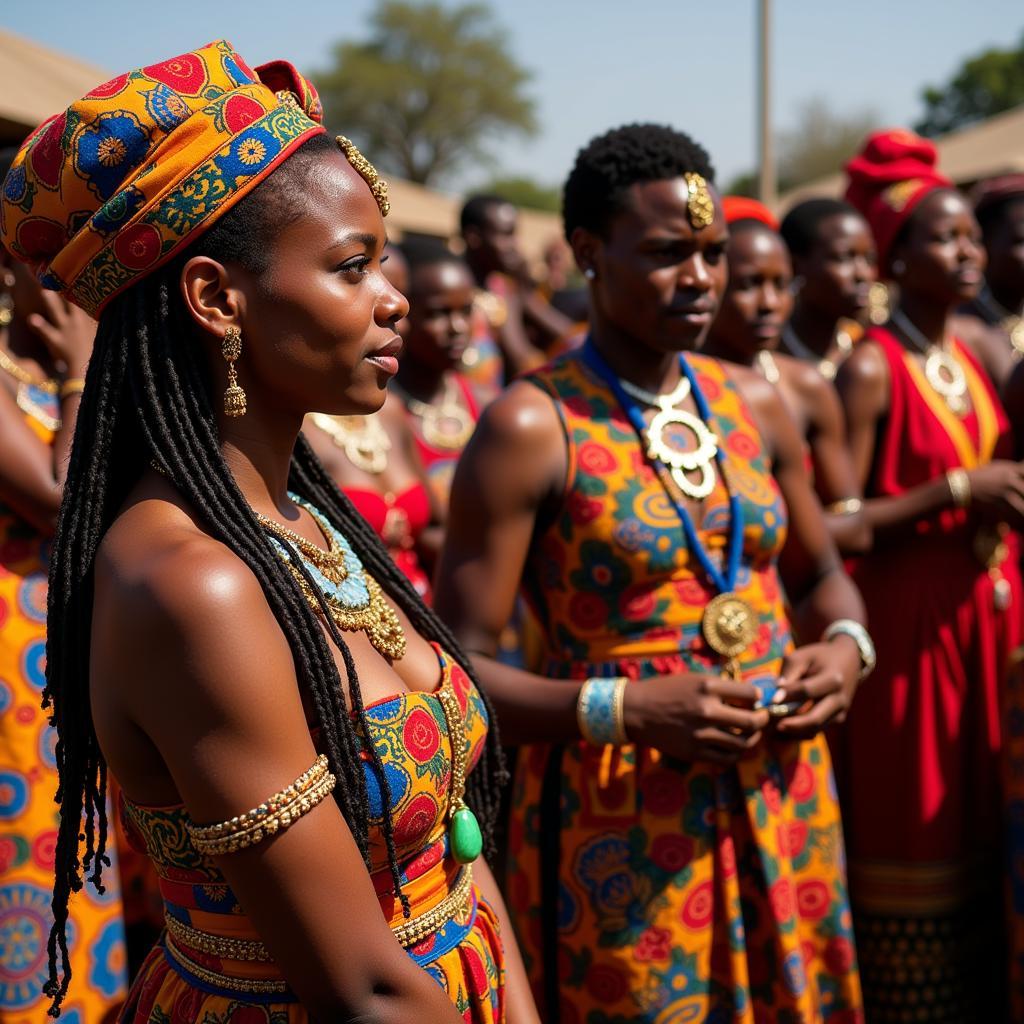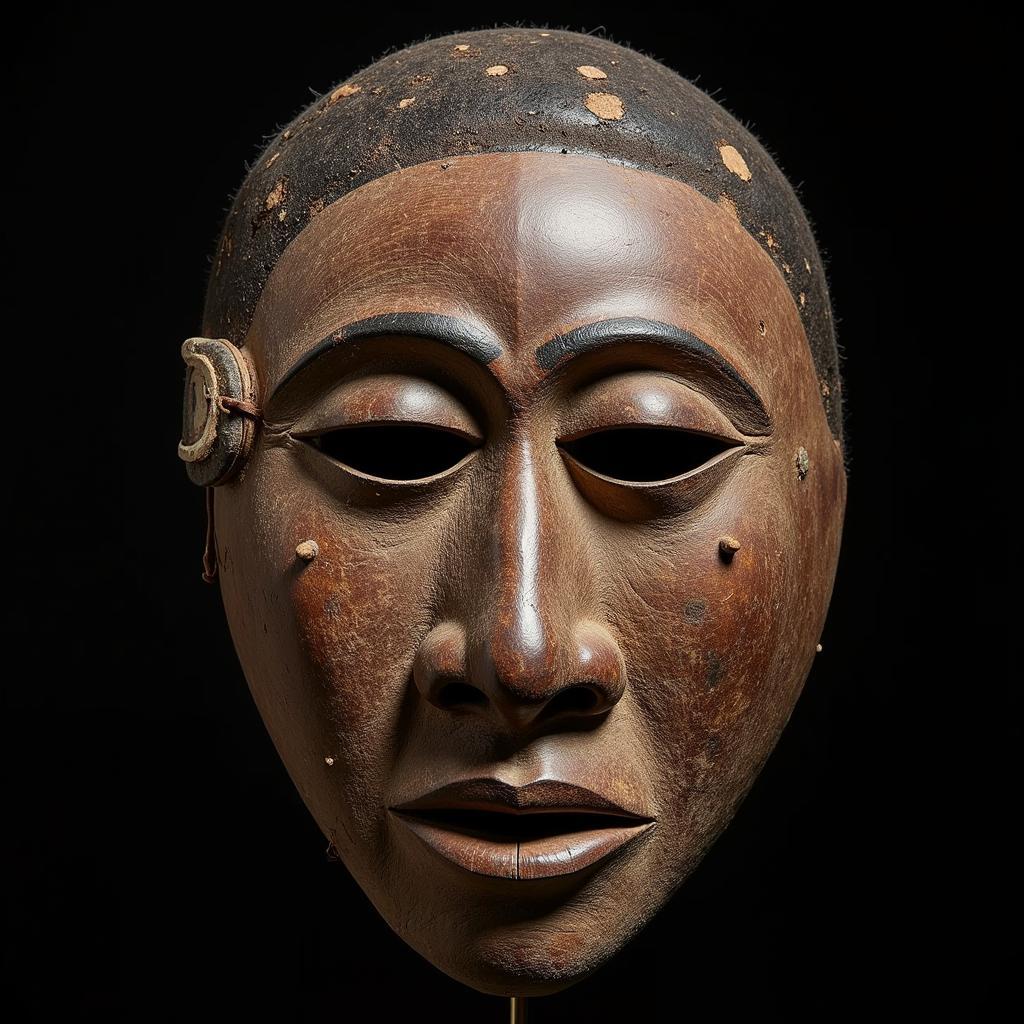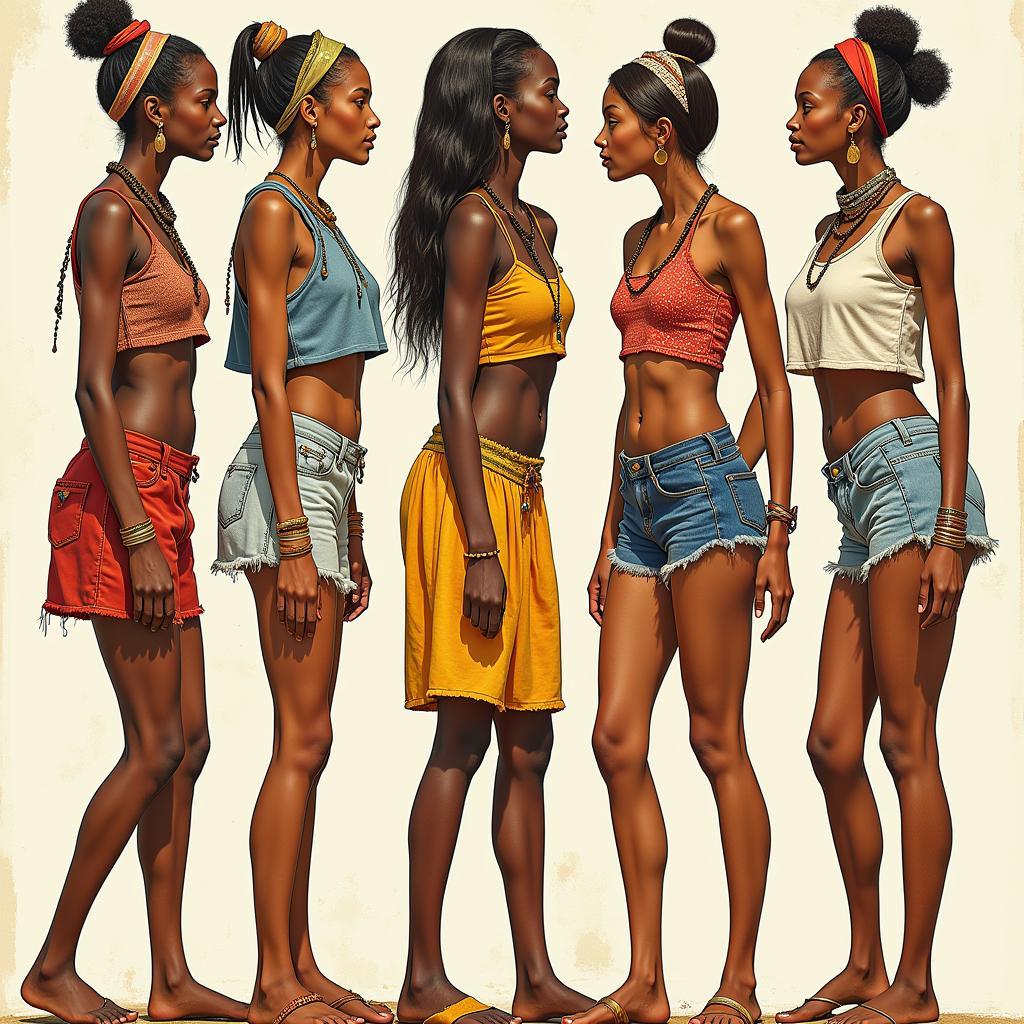Fascinating African Culture Facts
Africa, a continent brimming with vibrant cultures, bursts with captivating traditions and customs. From ancient rituals to modern artistic expressions, understanding African Culture Facts offers a glimpse into a world rich in diversity and heritage. This article explores some captivating insights into the heart of Africa.
The Tapestry of Languages and Ethnicities
Did you know that Africa boasts an astounding linguistic diversity? With over 2,000 languages spoken across the continent, it represents a third of the world’s languages. This linguistic richness intertwines with a multitude of ethnic groups, each contributing unique traditions, art forms, and beliefs to the cultural tapestry of Africa.
 African Cultural Ceremony
African Cultural Ceremony
For example, the Himba people of Namibia, known for their distinctive red ochre body paint, hold tight to their pastoral traditions, while the Yoruba people of Nigeria, renowned for their intricate sculptures and vibrant festivals, demonstrate the power of artistic expression.
Music and Dance: The Heartbeat of Africa
Music and dance are not merely forms of entertainment in Africa; they are integral to the social fabric, woven into everyday life, rituals, and celebrations. From the rhythmic drumming of West Africa to the soulful melodies of East Africa, each region resonates with its own unique musical signature.
The iconic djembe drum, originating from West Africa, has transcended geographical boundaries, captivating the world with its infectious rhythms. Similarly, the energetic dances, such as the South African gumboot dance, tell stories through rhythmic movements, reflecting the history and experiences of the people.
A Culinary Journey Through Africa
African cuisine is as diverse as its cultures, offering a tantalizing exploration for food enthusiasts. From the fragrant tagines of Morocco to the hearty stews of West Africa, each dish tells a story of cultural heritage and resourcefulness.
Staple foods like maize, cassava, and plantains are creatively transformed into an array of dishes, often flavored with aromatic spices and herbs that are unique to the region. The use of fresh, locally sourced ingredients shines through, creating a culinary experience that is both authentic and flavorful.
The Spirit of Ubuntu: A Shared Humanity
Central to many African cultures is the profound concept of “Ubuntu,” a Nguni Bantu term encapsulating the interconnectedness of humanity. Often translated as “humanity towards others,” Ubuntu emphasizes compassion, respect, and the importance of community.
This philosophy is deeply ingrained in social interactions, emphasizing the belief that “a person is a person through other persons.” It fosters a sense of shared responsibility and collective well-being, shaping community dynamics and values.
The Enduring Legacy of African Art
African art stands as a testament to the continent’s rich creative heritage. From the intricate wood carvings of the Makonde people to the vibrant textiles of the Ashanti people, each piece reflects cultural beliefs, historical narratives, and artistic ingenuity.
 African Tribal Mask
African Tribal Mask
African masks, often used in ceremonies and rituals, are not merely decorative objects but powerful symbols imbued with spiritual significance. The use of bold colors, geometric patterns, and symbolic imagery are characteristic of African art, captivating audiences worldwide.
Conclusion
Exploring African culture facts reveals a world of captivating diversity, rich traditions, and a deep-rooted sense of community. From the rhythmic beats of its music to the vibrant hues of its art, Africa pulsates with a life force that continues to inspire and influence the world. Understanding these cultural nuances offers a pathway to appreciating the intricate tapestry of human experience that thrives within this remarkable continent.

